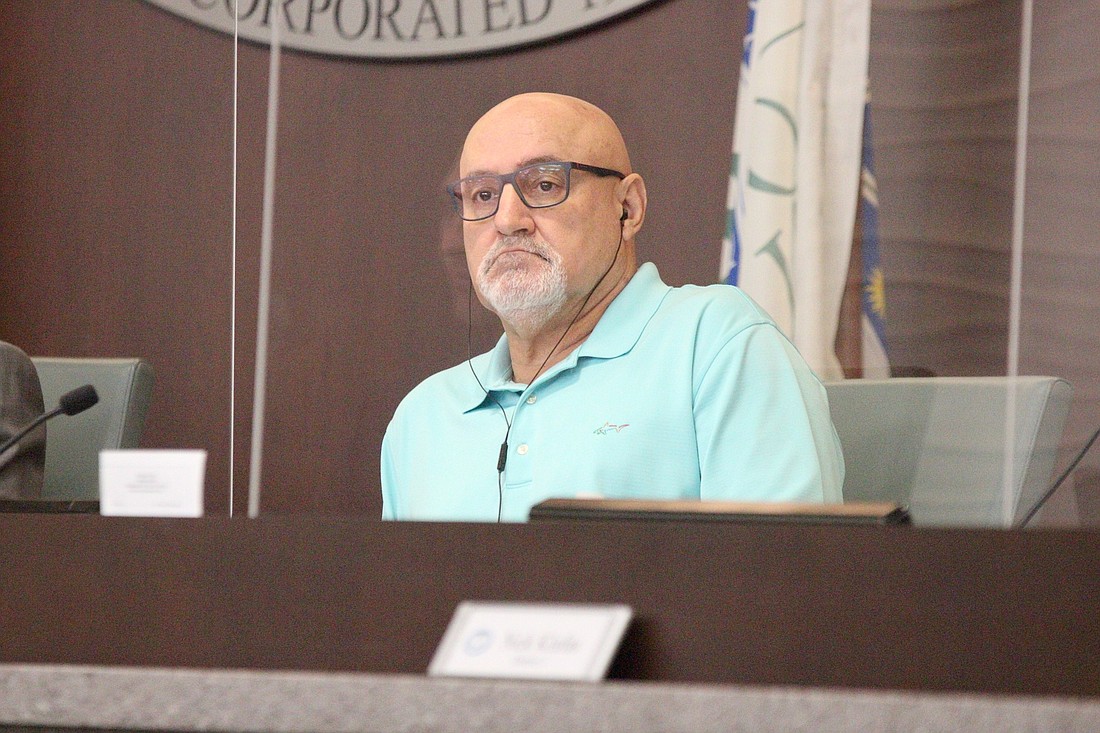- April 25, 2024
-
-
Loading

Loading

State law is clear: If a utility system on government right-of-way interferes with a government road improvement project, the cost of moving that infrastructure, with few exceptions, falls on whoever owns the utility system.
"Whether or not we would prevail if we get to court is problematic."
— BILL REISCHMANN, Palm Coast city attorney
Palm Coast owns a water utility system that serves the Marineland Acres subdivision, which is in unincorporated Flagler County boundaries rather than the city's but pays increased rates to get Palm Coast's water.
Those city water mains are in the Flagler County government's right-of-way — and in the way of an approximately $10 million county roadway and drainage improvement project that is already in progress.
But, despite a warning from the city's own attorney and an offer from the county government to cover approximately half of the $1.64 million utility relocation cost, Palm Coast City Council members at a Sept. 14 council workshop resisted agreeing to pay for the remaining portion of the project cost.
The potential conflict first surfaced publicly at a County Commission meeting in December 2020, when then- Palm Coast City Manager Matt Morton appeared before the County Commission arguing — not on legal grounds, but making an appeal to fairness — that the city's utility ratepayers shouldn't be burdened with the cost of a utility relocation project that would serve the small number of ratepayers who live in Marineland Acres.
"I think we should nicely, nicely ask the county to cough up the money."
— EDDIE BRANQUINHO, Palm Coast city councilman
The county government initially was not receptive.
"It’s their [the city's] responsibility to do this, and I think we need to hold their feet to the fire," Commissioner Greg Hansen said after Morton spoke at the Dec. 7, 2020, commission meeting.
But the County Commission decided at a Jan. 11 workshop to move forward with the construction and look at additional sources of funding to help offset the cost of the utility relocation process.
The former county administration worked with city of Palm Coast staff and proposed that the county pay $775,277 of the construction costs associated with the relocation, plus approximately $130,000 in design and engineering costs. That left $865,377, plus a 10% contingency of $165,000, for the city of Palm Coast to cover. The County Commission approved its share of the expense.
But when the agreement was presented to Palm Coast City Council members at the Sept. 14 workshop, councilmen said they were unfamiliar with the arrangement and didn't understand why the city would pay a million dollars for another government body's project.
Since this was a county project, Councilman Eddie Branquinho said, "I just think they should cough up the bill."
Councilman Victor Barbosa asked what the city had to gain by paying.
City Attorney Bill Reischmann explained that the issue wasn't what the city would gain, but what its legal obligations were.
Citing Florida Statute 337.403, he said the law was "very clear" about who's responsible for paying for utility relocations.
Its opening paragraph states that if utility infrastructure in a right-of-way interferes in any way with a road maintenance improvement or expansion project, "the utility owner shall ... initiate the work necessary to alleviate the interference at its own expense except as provided in paragraphs (a)-(j)."
Palm Coast does not meet the exceptions enumerated in paragraphs (a) through (j), Reischmann said. That meant the city would have no legal grounds not to pay up.
"What happens if we don't do this?" Councilman Ed Danko asked.
If the city refused, Reischmann said, the issue would go to a mediation process that Reischmann referred to as a "pre-lawsuit."
"Whether or not we would prevail if we get to court is problematic," Reischmann said.
Danko asked if there was any case history addressing a similar situation.
"We have done the research, and have not found any clear evidence that would support our argument in court to be able to prevail on this issue," Reischmann replied.
"But have you found any evidence of their argument prevailing?" Danko said.
Reischmann again detailed the law.
Danko and Branquinho weren't convinced.
"I think we should nicely, nicely ask the county to cough up the money," Branquinho said. "... Maybe if we kindly speak with them regarding this matter, maybe they'll agree to come up with a little more money."
Danko said he agreed with Branquinho. And if the city's resistance threatened to delay the county project, Danko added, that might give the city more leverage in negotiations.
Reischmann said it could subject the city to damages for the delay.
Palm Coast Utility Director Steve Flanagan told the councilmen that city staff, including Morton, had already met extensively with the county administration to develop the proposed agreement. The county had also offered to contribute funds for certain city-related projects, he said.
Councilman Nick Klufas said that if the city refused, it could face legal expenses and burn its political capital with the county government.
"We don't want to get in a legal battle with the county," he said.
Mayor David Alfin, who'd joined the council in a special election after the city-county back-and-forth that had led to the proposed division of expenses for the utility relocation, suggested that the city return to the county government and explain that the city has a new council that doesn't understand the proration of the project's expenses.
"We've got new faces here and new faces there," Alfin said. "I think we can have a diplomatic conversation without injuring ourselves. Certainly, we'd like to build our relationship with the county ... I want to improve what we have been improving over time."